“I just don’t understand your sudden interest in those kind of people.”
|
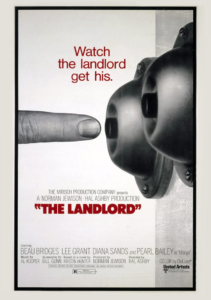
Synopsis:
A wealthy white man (Beau Bridges) purchases a rundown tenement in Brooklyn, intending to convert it into a ritzy apartment — but soon he finds himself deeply enmeshed in the lives of his black tenants, and his plans begin to shift.
|
|
Genres, Themes, Actors, and Directors:
- African-Americans
- Beau Bridges Films
- Class Relations
- Coming of Age
- Cross-Cultural Romance
- Hal Ashby Films
- Lee Grant Films
- Race Relations
- Satires and Spoofs
Review:
Before being asked to helm the cult hit Harold and Maude (1971), Hal Ashby made his directorial debut with this irreverent, hard-hitting satire about race and class relations in New York City. Centering on its titular protagonist’s belated “coming of age” at 29 years old (and his growing social consciousness), it boldly explores the tensions inherent in gentrification. Much like Bud Cort’s Harold, Bridges’ Elgar Enders is a baby-faced, overly protected man-boy from a wealthy family who longs for independence from his domineering mother — played here by Lee Grant, giving a fearless performance as a bigoted shrew (she was rightfully nominated as Best Supporting Actress). Subplots involve Elgar’s romance with a light-skinned dancer (Marki Bey), and his drunken one-night-stand with a tenant (Diana Sands), which propels the film towards its increasingly dark denouement. While Ashby can’t quite seem to figure out the right tone for the film — it veers wildly from satire to drama and back again — he should be applauded for daring to tackle such challenging issues his first time behind the camera.
Redeeming Qualities and Moments:
- Beau Bridges as Elgar Enders
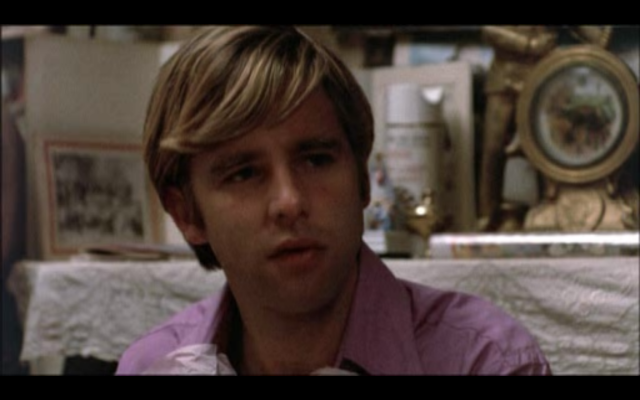
- Lee Grant as Elgar’s mom
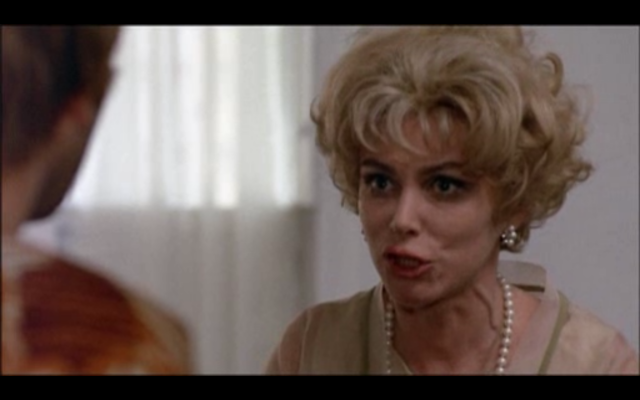
- Diana Sands as Francine
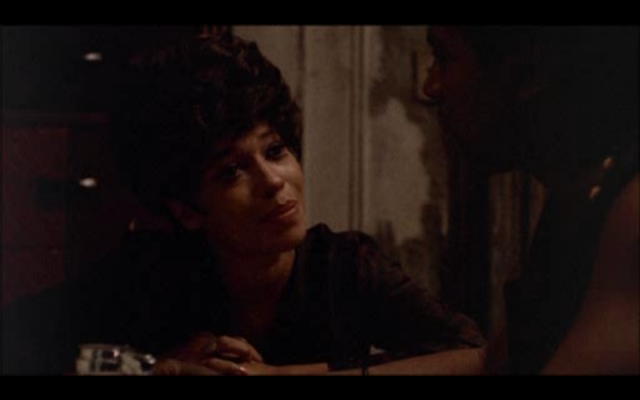
- A refreshingly blunt look at racial tensions
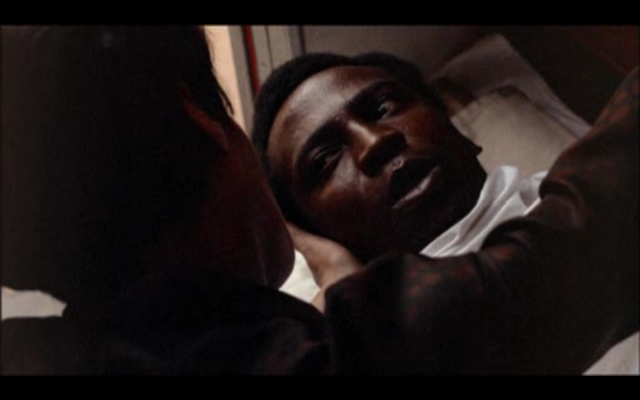
- Creative editing

Must See?
No, but it’s strongly recommended.
Links:
|
2 thoughts on “Landlord, The (1970)”
Not a must.
Over the years, I’ve probably tried 3x to watch this movie (getting through about 30 min.+ each time) and have only been able to get through it just now because I forced myself.
Not that I dislike it. It has an engaging and important premise – ‘premise’ being the operative word. There’s no story; there’s a situation – a group of characters who bounce off each other in a formless manner very much encouraged by director Ashby. He very much wants you to fall into the mood of the piece more than anything else – and if you do, and if you come away with some urgency of message that way, the film may be more of a success for you.
Personally, though I admire what’s behind the film, I feel it’s too much behind. I get frustrated (obviously – since I’ve never been pulled into it) by its lack of shape. ~as well as various other things; like the easy targets that are Bridges’ cartoon family members. ~like gaping holes in the through-line. ~like certain lines of dialogue that don’t seem to make any sense (i.e., why, when Bridges tells Grant he may attack her, would she ever take “attack” to mean “rape” and call him a pervert?)
For lack of another term, the film seems passive-aggressive – I don’t find it “hard-hitting” enough. I find it tentative. I’d prefer a less-subtle approach overall, though it could still masquerade as comedy (until its somewhat-punched-up conclusion). It’s true; I, too, feel the tone is unsure.
I should note that, throughout, there’s the occasional sprinkle of brilliance. I love when Grant tries to defend her so-called liberal stance to Bridges with, “Elgar, didn’t we all go together to see ‘Guess Who’s Coming to Dinner?'” And, later in the film, when Grant understands that Bridges has impregnated a black woman, she has a brief ‘fantasy/nightmare’ of being surrounded by black children – in what seems a plantation setting – as she sings to them. To me, such snippets are shadows of a more powerful film.
Interestingly, I can relate to your very first comment about this film — when I first started watching it, I got about 1/2 hour through, then set it aside and sort of forgot about it. Clearly I didn’t find it compelling enough at that point to need to keep going and find out what happened… So yes, I understand your overall sentiment here.